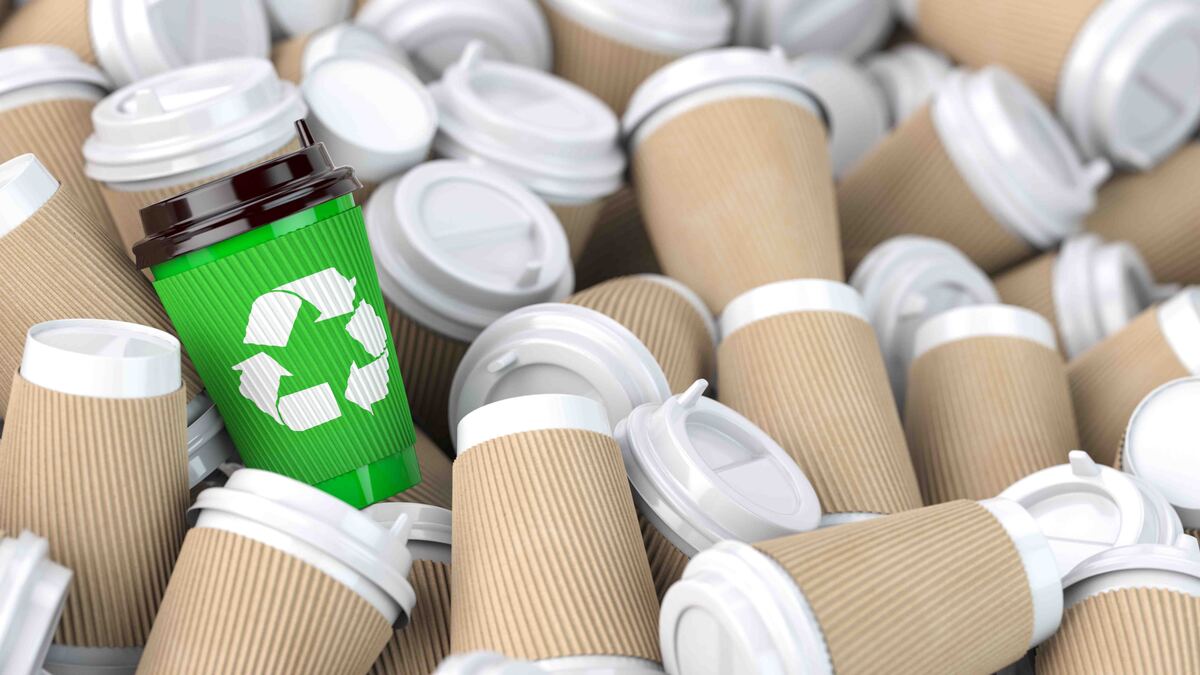Published:

Buying a cup of coffee is an everyday routine but how much environmental damage does it cause?
It's a question few will ask as they hand over their money but a new community-led research project, supported by academics from Heriot-Watt University and the University of York, aims to challenge this.
In the picturesque town of Helensburgh located on Scotland's west coast, volunteers belonging to the charitable social enterprise, The GRAB Trust, recently began a three month-trial as part of its ongoing ‘waste free take-away' project.
Working with GRAB and local volunteers and campaigners on a very similar research project in Oban last summer was, without doubt, one of the most rewarding experiences of my career.
Launched in March, the trial encourages local customers to opt for reusable cups instead of the more familiar but unsustainable, single-use versions.
Participating cafes are now selling reusable cups to customers at a discounted rate in a bid to change consumer behaviour. Many of the businesses taking part will go a step further by offering a reduced price for tea or coffee when a customer uses a reusable cup.
At the end of the trial, data will be collected from all the businesses and from the local community to identify the barriers that prevent people from carrying a reusable cup and determine what factors will encourage them to make the switch.
Marylyn Carrigan, Professor of Marketing and Sustainability from the Edinburgh Business School at Heriot-Watt University is working alongside, Professor Victoria Wells from the University of York. They will visit local businesses to gather their views and support The GRAB Trust in communicating the project findings to Argyll and Bute Council and local enterprises later in the year.
Professor Carrigan explains: “Working with GRAB and local volunteers and campaigners on a very similar research project in Oban last summer was, without doubt, one of the most rewarding experiences of my career.
“The community were so invested in the trial and were committed to making a difference to the area. It was very inspiring to see and really demonstrates the potential of local people to tackle the big global challenges in their communities such as littering, waste and climate change.
“The findings of that trial were very revealing, and highlighted some of the challenges faced, particularly by small businesses, in trying to convince people to use reusable cups. While people will happily carry a refillable water bottle they don't like the thought of carrying a dirty cup, not realising that lots of local cafes will willingly clean it out when asked. The Oban trial identified the barriers that need to be overcome and from a scientific standpoint, understanding those challenges on a small scale is essential to seeking answers to the big sustainability problems.”
The reusable cups were generously donated free of charge from the Ecoffee Cup company to encourage customers and help cut down on waste.
The GRAB Trust says Argyll and Bute has, at present, no facilities to recycle single use cups. This means that despite best efforts of the local population placing single-use cups into the recycling bin, these items will end up in landfill.
Jacqueline Willis from the GRAB Trust, said: “It is going to be interesting to see whether we come up against the same barriers to behavioural change in Helensburgh that were encountered in the previous trial in Oban.
“The towns have very different demographics with Helensburgh home to a larger population. But it doesn't have the throughput of tourists that Oban experiences and is a commuter town for Glasgow as well as serving as a main shopping centre for the local area.
“Generally, people seem to be unaware of the requirement for a dedicated waste chain for these cups and as a result there is a lack of ‘guilt' associated with cups that people assume will be recycled if they put them in a recycling bin.
“Interestingly, at the start of the Helensburgh trial some of the participating business owners expressed the belief that far fewer individuals have been using reusable cups in recent months than had been using them pre-covid. I'm hopeful that a nudge in the right direction with a reminder that single use cups are neither recycled or composted in Argyll might be enough to put some of these individuals back on the right track.”
The Highlands and Islands Climate Change Community Grant, funded by UK Research and Innovation (UKRI) and delivered by the British Science Association (BSA) and Science Ceilidh, is supporting communities in the Highlands and Islands of Scotland to work together with researchers on addressing local climate change issues.
Through the scheme, communities that have fewer opportunities to engage with research can lead partnerships with researchers on challenges that matter to them.